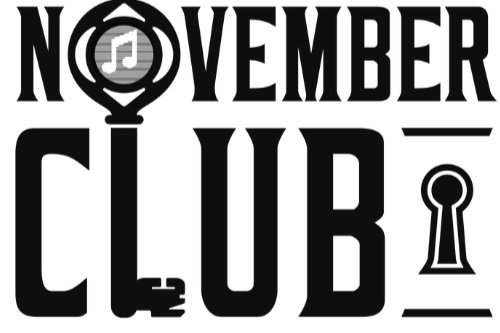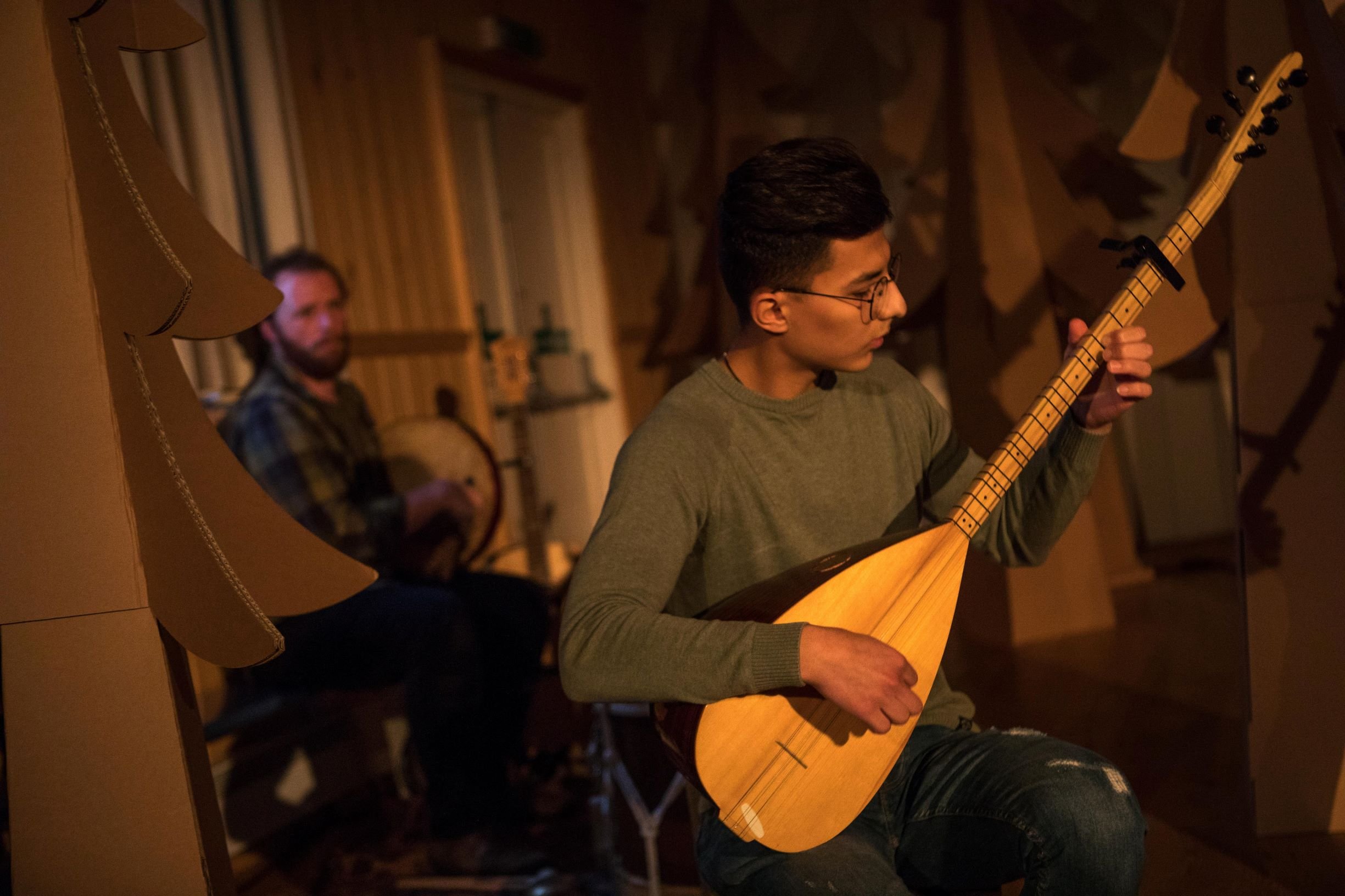
Who we are
November Club creates exceptional and remarkable theatre in unusual places from our home in Northumberland.
We seek to tell original stories primarily through performance.
We work in unusual places and spaces. We take a structured approach to developing local artistic and creative talent. We develop models of working with communities and partners to enrich our work.
We were established in 1990 as European Players. We became a charitable company in May 1991 and a registered charity in Jan 1993. We formally re-branded to November Club in Oct 2010.
We want all our work to be:
Joyful | Ethical | Welcoming | Brave
These values guide us through all our decision making in our work.
“We aim to change the sense of what can be achieved creatively in our region, resulting in communities feeling proud because incredible things happen here.”
Creating exceptional and remarkable theatre in unusual places.
Northumberland is known as the county of castles, but it also has a plethora of magnificent county houses. One such house, Seaton Delaval Hall, a stately home in the county’s South-East, doesn’t seem like the natural location for an Autumn evening’s entertainment. But that was the challenge the National Trust at Seaton Delaval Hall commissioned us to achieve.
Whilst the building is largely a ruin, the National Trust have been working hard to make it a “place of great theatricality, drama and mischief”. Our production “The Unlocked Door” tapped into those ambitions. We devised a series of performances that represented an element in the history of the hall: Sir John Vanbrugh designing the hall; a drag performance recreating the flamboyant ‘Gay Delavals’; the story of a servant caught up in the fire that destroyed the building; a dance that linked to the hall’s time as a prisoner-of-war camp; and an aerial show, encouraging us to look to the hall’s future. The audience promenaded around the hall taking in each performance and ending in the Stables for a DJ set and drinks.
“I liked the open ending to the show, a sign that the story of Seaton Delaval Hall is not over, despite Delaval family no longer connected to the place. The smooth progression of acts from events strictly connected to the history of the place, to the more abstract ones inspired by the place and its history but not rooted in it is a great allegory for how the general perception of the Seaton Delaval Hall evolved over time.” An audience member.
“Congratulations! It was a fantastic show. Really appreciated having such an unusual experience to be at the hall at night, in the dark - fantastic atmosphere and felt it fitted the performance. The rave was a highlight; unexpected, funny and context gave added depth. The contrasts between scenes was powerful and the fire & German scenes very emotive. Wonderful to move between monologues and silence, drag and contemporary dance, etc. Enjoyed being immersed in a site-specific performance, without stage managers etc overtly directing us but led by the cast it felt seamless. Moving through history from different people's perspectives was insightful and spoke to the issues of the times, with relevance today.” An audience member.
We think the audience believed we had created exceptional and remarkable theatre in an unusual space!
“This was a superb event. Great performances by all involved, organised perfectly from the point of view of the visitor. The performances were completely varied, and each engrossed us in different ways. ”
We celebrate storytelling and creativity
The COVID lockdown was a time of real challenge for the world of theatre, even as places opened up, many people were unwilling to sit inside amongst potential carriers of the virus. November Club found a creative way around the problem. Our new Associate Director/CEO, Joe Hufton, had just joined the company from outside the county. As a seasoned walker, he was keen to walk the Northumberland countryside inviting people to join him along the way. He produced a project called Walk In Your Shoes/Doorstep Theatre.
Walk In Your Shoes consisted of a series of days of walking, diagonally across the county from Hexham to Berwick, largely following the long-distance path, St Oswald’s Way. For nine of these days, 60 people joined us on the walks. At roughly each location that a walk ended, we then delivered a piece of outdoor theatre Doorstep Theatre that told of a modern miracle linked to the re-emergence of St Oswald in modern day Heavenfield. We performed in people’s back gardens, in a church hall, in a pub garden, in the garden of a business, as part of a wider outdoor show and on people’s doorsteps. 388 people saw the show.
People loved both the walks and the theatre. This is what they said:
“It was lovely to have someone come and perform on our doorstep, it's really lovely to have something so personal and feel part of a community.” Longhoughton audience member.
“Loved the idea of theatre in the garden. Enjoyed the informality and interaction. A good story, well performed with humour.” Felton audience member.
“First walk I have done with a group of people for a long time so this was a bit different. It was unusual as the connection was theatre and not something you would expect. This was good though since I wouldn't normally join a walking group! I was sad I could not join in more actually, I would have done all the walks now given the chance! It was well planned and executed.” A walker.
During this time, it was a real challenge to find something that would engage people in a safe and creative way. We really think we achieved this with Walk In Your Shoes / Doorstep Theatre.
“It brought people together after a long period of isolation. It got me thinking about community and arts and culture, and ways of delivering theatre in the future.”
We enrich the cultural workforce by developing the skills of volunteers and professionals.
At November Club we believe very strongly in developing the skills of the people who work for us. We believe the three stages of learning, doing and reflecting helps us to build exceptional work. This concept extends beyond our permanent staff team to encompass our freelancer and volunteers.
Northumberland is a vast county populated by individuals with a plethora of backgrounds and interests. We often focus our work on communities of interest, identity or place. For example, we first met Khalil Abdulrahman in the summer of 2019 when we worked with a group of Northumberland refugees developing ideas for our Fairytales project. Khalil was an 18-year-old Kurdish-Syrian, originally brought up in Aleppo, who with his family first fled Kurdistan and then Turkey before arriving in Northumberland.
During one of the participatory sessions we held to build Fairytales, Khalil riffed on his tanbur, with one of our professional performers. We knew we had to invite Khalil to join our professional ensemble to perform in our work-in-progress performances. Whilst Khalil clearly enjoyed the experience, music was a hobby for him. His professional ambitions were to secure a degree and work in the construction industry as a designer. Over the years he has volunteered for us on a variety of roles. He was the model for our imagery for Repeat Signal, he trained as a walk guide for Walk in Your Shoes and he has helped with administration around project planning (a skill we thought would be useful in his professional ambitions). Whilst the later task had a practical application for his future career, his volunteering with November Club, especially in the early days, helped to develop his English language skills and his confidence is his ability to achieve what he wanted.
We offer employment opportunities to cultural freelancers
We’ve kept records of the people we’ve employed (on a permanent and freelance basis) since 2014 and in that time we have employed over 170 people.
We have a small core team of four people of whom only Joe Hufton, the Artistic Director/CEO and Louise Taylor-Asheg, the Particpation and GROW Producer, contribute to the creative elements you see in a production.
We could not produce the range of productions we do without the help of a wide range of freelancers.
“A small team doing incredible, bold work. It doesn’t go unnoticed how much care and attention there is (of audience & artists) despite the small size of the team.”







